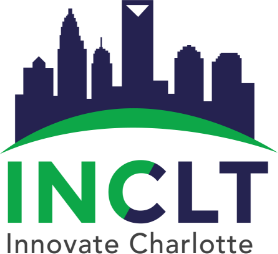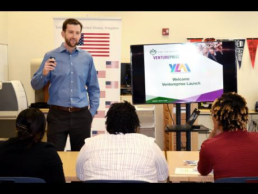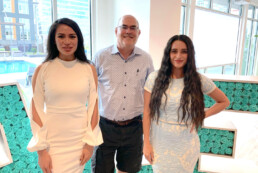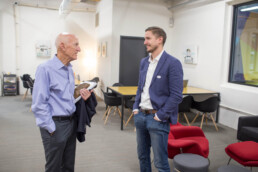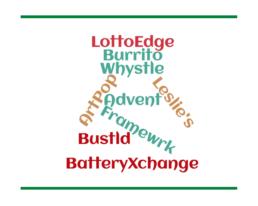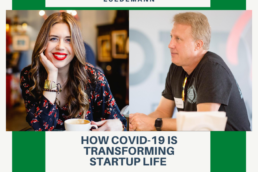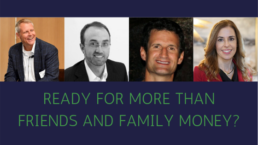Ventureprise — Helping Founders with Customer Discovery
At INCLT, we’re committed to connecting entrepreneurs to all the helpful resources the Queen City has to offer. One such resource is Ventureprise — UNC Charlotte’s entrepreneurship and innovation hub, which was designed with a laser focus on customer discovery, with programs for students, faculty and the community at large. And our work often goes hand in hand.
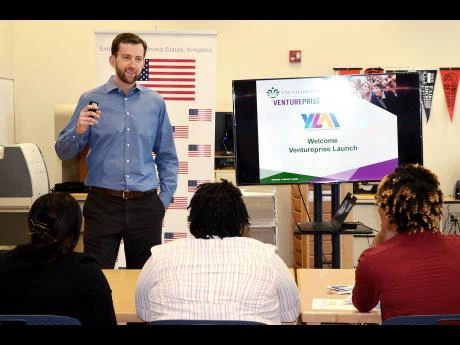
Over the last couple of years, quite a few ventures that graduated from Ventureprise Customer Discovery programs went on to join the INCLT Venture Mentoring Service:
Graduates
Ascend GoalsGig Connected
Genubot.
BovaMetrics
Vizlatech
Current INCLT Ventures
Smart Girls HQ
Pollination Apothecary
Ventureprise helps founders lay a strong foundation for their business. Then, our mentors have helped them to grow and scale.
To illustrate the impact of Ventureprise, let’s take the story of Dr. Margaret Kocherga, Ph.D. As co-founder of Light & Charge Solutions, she knew a market existed for organic light-emitting diode technology, but she didn’t know how to break through and connect with the right customers. Then, she found Ventureprise.
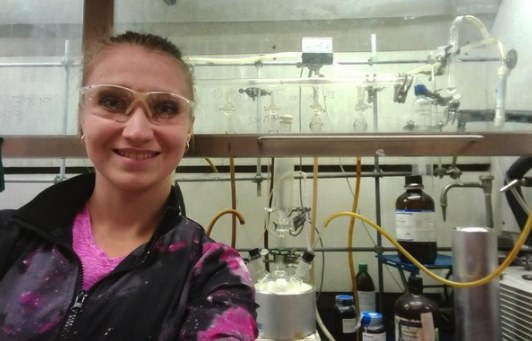
Kocherga participated in the Spring 2019 cohort of the Ventureprise Launch National Science Foundation (NSF) I-Corps program for her venture. Through Ventureprise, she received funding to travel to trade shows on the West Coast to network with potential customers and learn more about how her materials could help.
Then, in April 2020, she was selected for Chain Reaction Innovations (CRI), an entrepreneurship program at the U.S. Department of Energy’s Argonne National Laboratory, where she’ll take part in a two-year fellowship.
“Margaret came through these programs and discovered that she was very entrepreneurial and she wanted to be in the startup world,” said Devin Collins, interim executive director of Ventureprise. “She wanted to continue to take her technology out of the lab and not just be a professor but go start a company. Now over the last year, she's worked towards that.”
Ventureprise played a critical role in that process.
The program is one of the oldest programs in Charlotte’ entrepreneurial ecosystem. It began as the Ben Craig Center in 1986 and was one of the nation’s earliest small business incubators. Now funded through the university and grant programs, Ventureprise hosts a variety of launch programs for early-stage startups. For science-based startups, there’s the I-Corps program, which equips students, faculty and staff with customer discovery knowledge so they can introduce research-driven projects to the marketplace and prepare for the national I-Corps program.
Similar to the I-Corps program, the Ventureprise Launch NC IDEA Program helps startups both on- or off-campus test their innovations with the goal of assessing their commercial viability. Both programs take place in six-week cohorts of eight to 12 teams. Ventureprise accepts applications on a rolling basis and is free for participants.
“We have a variety of stages,” said Laura Smailes, assistant director. “Some people have revenue. Some people are fleshing out their idea and building something that may not be finished at this point. Everybody’s able to relate to each other.”
Idea-stage ventures are also eligible, as long as participants have made progress or gained traction. Customer discovery can be equally important for funded ventures, too.
“We’ve had teams that have raised $800,000 and then come to participate because they built the wrong product to begin with for the wrong customer,” Collins said. “Now, they have to pivot to a new customer.”
Customer discovery requires some pounding the pavement and cold calls, which can seem frightening on the surface. Collins has enjoyed watching participants’ mentalities shift over the course of the six-week program. He has also seen the outreach result in students landing jobs.
“After 30 interviews, students are suddenly surprised that people will talk to them,” Collins said. “It’s like muscle memory. Once you start and become comfortable, it becomes much easier.”
Ventureprise also helps eligible startups lay the groundwork to compete for additional funding. Like Kocherga, several participants have gone on to receive $10,000 microgrants from NC IDEA.
Once the cohort begins, participants take part in weekly lessons — most recently, in a virtual setting — with a discussion of topics such as value propositions or market size. Then, teams will present what they’ve learned from the exercise. Participants are encouraged to push boundaries and consult with industry experts, potential partners and customers. Each week, participants walk away with a more fine-tuned idea of their target customer and the questions they need to keep asking.
“People really enjoy the camaraderie and networking with the class,” Smailes said. “They even said this about the virtual cohort, as well. They meet people who are going through the same processes they’re going through.”
Ventureprise has approximately 250 alumni from its cohorts. Those alumni then become eligible to participate in Ventureprise Launch 2.0, an accelerator program focused on developing business models. The 2.0 program explores funding sources, cost structure and other resources while preparing participants to submit for NC IDEA seed grants. Ventureprise also hosts the Charlotte Venture Challenge, an annual innovation showcase where teams can pitch their big ideas and win prizes.
In the future, Collins expects Ventureprise to focus on providing more opportunities to students and faculty, pending grant developments. With about 30,000 students, UNC Charlotte is practically a city within a city, and the work of Ventureprise goes a long way toward nurturing promising entrepreneurs.
“We want to give all our students an opportunity to be introduced to entrepreneurship, to actually go practice so they can learn by doing and creating,” Collins said.
Customer insights benefit entrepreneurs at every stage. Olga Muller, director of operations for local software development company Kepler Team, has experienced that value firsthand. “Customers are an entrepreneur’s best teacher. We are grateful that Ventureprise has equipped so many business leaders to think collaboratively about customer interactions.”
To learn more about Ventureprise or apply for an upcoming cohort, visit entrepreneurship.uncc.edu
Meet Summer 2020 Class of INCLT Mentees
There’s a story behind every startup.
The highs and lows each founder experiences has a tremendous impact on their vision and, ultimately, their success. At Innovate Charlotte, we see that firsthand, in the startups that enroll in our mentorship program.
Now, during one of the most challenging times in recent history, we’re welcoming a new class of mentees to the program, which connects startup founders with mentors to guide them through the early stages of their businesses. And we’re introducing them to Charlotte’s startup ecosystem here, with a look at their journeys so far and how this community can support their evolution and growth.

You can learn more about our new class below.
- Lawpods (lawpods.com) helps law firms create engaging, professional podcast content that speaks directly to potential clients in a friendly and informative way.
- Plush Lifestyle Management provides luxury high-rises with 24/7 luxury front desk concierge services.
- Genisys Renewable Energy helps solar developers have prime land that is ready to be leased and is permitted.
- Treehab (https://treehab.co/) offers a convenient way to access medical marijuana in your local area.
If you’re interested in becoming part of the program — either as a mentor or mentee — you can find more information here.
Robert Ingalls, founder of Lawpods
Robert Ingalls wanted to be a dad, and he knew long hours as a lawyer weren’t going to cut it. So, he started reading money management books. Soon, he progressed to podcasts and fell in love with the medium.
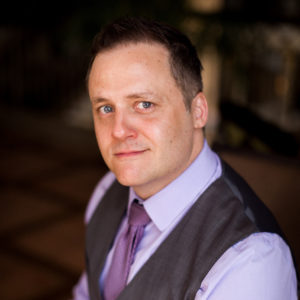
“A month later, I owned $1,000 worth of podcast gear,” Ingalls said. “Thankfully, it worked because I didn’t have to go sell that stuff on Craiglist like most people do.”
He started his own podcast out of his law firm in June 2016, right before he found out he was going to be a father. Podcasting took off for him, and he soon launched Lawpods, a podcast production company dedicated to working with law firms that want to position themselves as thought leaders.
“We wanted to make sure we could build a company that was sustainable,” Ingalls said. “It was going to be easier for me to build and defend that niche when the time came. That strategy has already helped us get in the door, and some of the biggest law firms in the world are on our client list.”
Through the INCLT mentorship program, Ingalls is looking to learn about business development and marketing from seasoned mentors.
“The mentors that have stepped up and chosen to work with me all have a solid background in those areas, so I’m really excited,” Ingalls said.
Alex Pascal, founder of Plush
Alex Pascal has had a hustle going for most of his life. He grew up in Brooklyn and started bagging groceries with his brothers at the age of 10 until one day when he broke someone’s pickles.
“I was so embarrassed that I never went back,” Pascal said. “Still, that was my first taste of entrepreneurship.”
Since then, Pascal has made a career out of it. He managed a smoke shop, opened an Internet café and eventually started his own dog walking company. Then, he was approached by a high-rise building that needed black car service. Pascal didn’t have a black car, so he bought one, and Plush, a luxury transportation service, was born. Now, he has three drivers working with him.
“The car smells new every time you get in it, and that’s what my clients like,” Pascal said.
Pascal is looking to his INCLT mentors to help combine his natural business instincts with formal knowledge. He wants to grow into a lifestyle management brand with front-desk concierge service.
“The best room to be in is with people who are smarter than you, people who have been there, done that and have wisdom and guidance,” Pascal said. “I come from the school of hard knocks.”
Daniel Rusu, founder of Genisys Renewable Energy
With renewables coming into their own, the 2020s look to be a landmark shift for the energy sector, and Daniel Rusu has been planning for that reality.
 Rusu has worked in land acquisition for seven years. His speciality has been land leasing for both oil and gas and renewables such as wind and solar. It was through this work that he came across an opportunity for his own venture.
Rusu has worked in land acquisition for seven years. His speciality has been land leasing for both oil and gas and renewables such as wind and solar. It was through this work that he came across an opportunity for his own venture.
“I worked for a developer, and we had a tough time leasing land,” Rusu said. “A lot of the renewable energy incentives would get lost because it would take time to make an acquisition or to close a deal. So, I saw that opening.”
He began working on the concept in 2018 and ultimately launched Genisys Renewable Energy in late 2019. The company offers land brokerage for wind and solar developers. Rusu specializes in the Southeast, and he has been working on a database of tracts well-suited for development.
Now, Rusu is looking to INCLT for help with business development. He believes the company is at a pivotal point.
“If I can get some professional advice from successful entrepreneurs, I think that would help me a lot on how to get that first contract,” Rusu said.
Brandon Terrell, founder of Treehab
For Brandon Terrell, the road to a startup began with helping a relative.
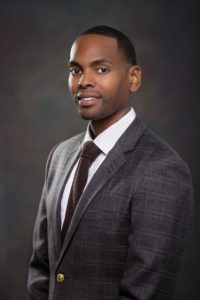 Terrell, a marketer by trade, had a family member who was looking to find physicians willing to discuss alternative medicine. It took several months to find the support they needed, but Terrell didn’t stop learning about the industry.
Terrell, a marketer by trade, had a family member who was looking to find physicians willing to discuss alternative medicine. It took several months to find the support they needed, but Terrell didn’t stop learning about the industry.
“I was very fortunate that I was able to travel the country and go to markets such as California and Colorado, where I had firsthand experience about the blossoming cannabis industry,” Terrell said. “I began to identify individuals who had the same problem that my family experienced with finding a doctor.”
To fill that need, Terrell found Treehab in 2017. Treehab is a network of experienced physicians, mainly in the Georgia market, that advertises to consumers who may be interested in learning about medical marijuana. The company launched a new website this year, and it has experienced an uptick in demand during the pandemic.
“Last month, we had over 10,000 inquiries from individuals who wanted to request an appointment to meet with a doctor,” Terrell said. “That was a milestone we are very proud of.”
Terrell understands the value that outside input can bring, and he looks forward to hearing the insights of INCLT mentors.
“I’m really looking for mentors who can help identify the next phase of development, and it may come from something outside of my wheelhouse, which is marketing,” Terrell said.
When businesses like INCLT’s new recruits get the opportunity to grow, the entire Charlotte community benefits. Olga Muller, director of operations for local software development company Kepler Team, has seen that firsthand, both as part of a startup and as a member of the broader entrepreneurial ecosystem in Charlotte. “No business or founder can succeed in isolation. Success requires a collaborative approach and help from those who have been there and done that when it comes starting and building companies.”
To learn more about Innovate Charlotte and how you can get involved, visit www.inclt.org.
Getting to know Mark Steinman
When Mark Steinman retired from corporate America, he wanted to give back to the business community. He just didn’t know where to begin.
“I began looking around town, and I was just astounded by the vibrant ecosystem in the startup community,” Steinman recalled. “One of the first things I did was go to a meeting for startup ventures at Packard Place. I had worked at the corner of Trade and Tryon — two blocks from Packard Place — for 17 years, and I didn’t even know it existed.”
Over the next few months, he found his way to other Charlotte entrepreneurial organizations, including INCLT, where he became one of our organization’s first mentors.
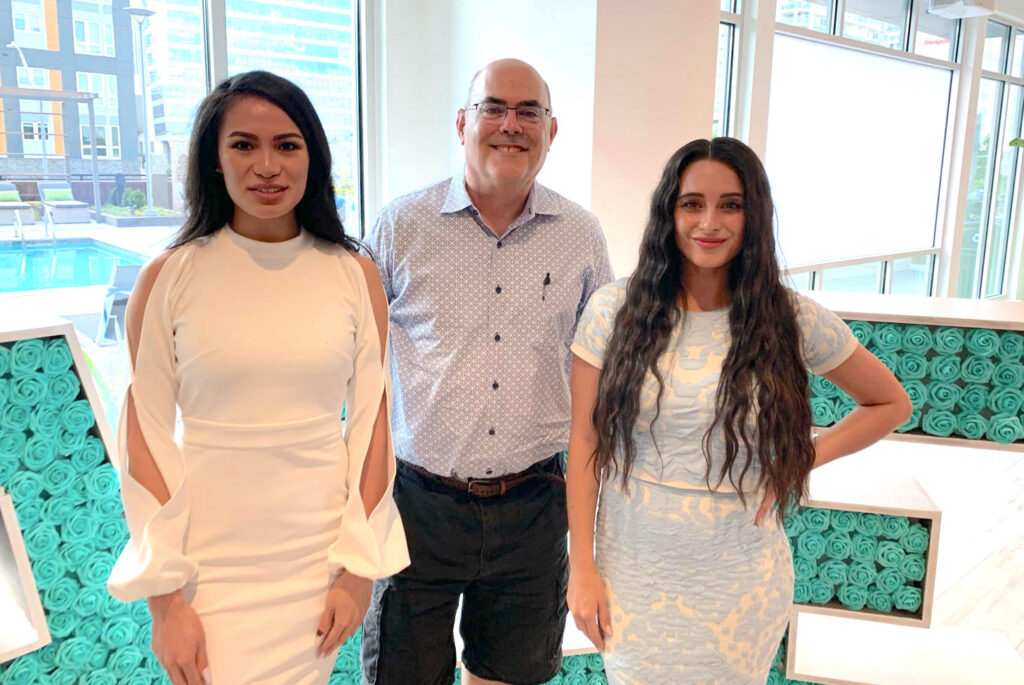
“I realized as I got further in my career that my responsibility as a leader was to coach and mentor the people who worked for me on how to grow their own careers,” said Steinman, who spent 20 years working for General Electric and 17 years at Bank of America. “Now I’m doing the same thing with our startups."
We spoke with Steinman recently about his work with INCLT and the projects he’s taken on as he eased into retirement. Below are excerpts from our conversation.
Let’s talk about the work you’ve been doing with INCLT. What has that looked like from a mentorship perspective?
Recently, I’ve been working with three young entrepreneurs in their 20s with limited business experience who required a lot of guidance in how to approach the design of their product, the testing of their product, some of the go-to-market strategies of their product — things they haven’t thought of because they haven’t been through this experience before.
We meet with them about once a month, give or take. My process is to listen, listen, listen, and then ask questions. It’s not my role to direct them what to do. We are mentors, not decision makers. Instead, we ask questions to help them figure out the right path forward.
What has it been like to work with a team of mentors, rather than one-on-one with a founder?
It’s no different than working in a large company with executives and managers who have a variety of backgrounds and experiences. It’s an opportunity to tease out the strengths of the different mentors and how they could best help the founders — what I find is, people who have had long and varied careers can provide valuable insight in most situations.
You joined INCLT fairly early on in its existence. How has the organization changed since then?
At the time I joined INCLT, it was a startup itself, with the same growing pains that the companies we were mentoring had. One of those was that we kept saying we were founder-centric, but how do you know until you measure it? So we started measuring how engaged our mentors were.
We started rather simply — measuring whether mentors were attending meetings with our founders — to give us a gauge of whether we were truly founder-centric. There are other critical metrics, but just measuring this one aspect of engagement, as we came through our own maturity as an organization, allowed us to see whether we were adhering to the values we espoused.
Tell us about the mentors who helped you throughout your career. Who stands out in your memory?
I had one mentor who was a great leader, and his great expression was “role and goal clarity”. He used the analogy of a football team where, if everyone doesn’t play their position on the field or know what the goal is, you can’t score. He used to hammer that home, and I really took that to heart as a way to run an organization.
How has the COVID-19 pandemic impacted the companies you’re working with?
I’ve been working with each company that I mentor on how the pandemic specifically impacts their business plan and business model. For the most part, companies are finding their way through it. I don’t believe any of the ventures in INCLT have shut their doors because of the pandemic. It has affected the business plans of most and it can breed opportunity. One of them, a wedding planning startup called Bustld, has pivoted to launch a virtual wedding planning platform. Another company that was providing cleaning services for homes and apartments, Whystle, has pivoted towards commercial cleaning.
One of the benefits of being small is that you can be nimble. When you’re in a large company, it’s a much greater challenge to be nimble when something like this happens.
Now that you are retired, what does day-to-day life look like for you?
I just enjoy myself. I knew that when I got to retirement, I wanted to be able to do what I wanted when I wanted. Now I am.
As one example, I'm second-generation American. My paternal grandmother immigrated from Europe under very challenging circumstances. Her father came to America, leaving his wife and seven children in Europe. His plan was to earn enough money to bring them all over, too. Two years into those efforts, his wife died, leaving seven orphans in Europe. There is a tremendous story of perseverance about how they all eventually found their way to America and prospered. I heard the story as a child and spent six months of my retirement documenting it for our family and for future generations so the story wouldn’t be forgotten.
Mentors like Mark Steinman offer critical support to businesses in their earliest stages. When those businesses get the opportunity to grow, the entire Charlotte community benefits. Olga Muller, director of operations for local software development company Kepler Team, has seen that firsthand, both as part of a startup and as a member of the broader entrepreneurial ecosystem in Charlotte. “No business or founder can succeed in isolation. Success requires a collaborative approach and help from those who have been there and done that when it comes starting and building companies.”
If you’d like to support entrepreneurs in our community, consider the INCLT Venture Mentoring Service. We are currently accepting applications for both mentors looking to give back and founders in need of guidance. Learn more here.
Mentorship in a time of crisis: Our Q&A with David Jones
With the right mindset, a crisis can be an opportunity. There is no greater time to learn, plan and change. For David Jones, it was a chance to thrive.
During the Great Recession, Jones was CEO of Peak 10, a data-center company he founded about a decade prior. While other businesses laid off employees and shut their doors, Jones stayed the course and Peak 10 turned the corner. In 2010, the business was acquired for $410 million, and the Charlotte Business Journal chose David as its “Business Person of the Year.” Under his leadership the company had a second exit in 2014 and Jones had managed investment relationships with five private equity firms over the span of his Peak 10 leadership. He continues to serve on the company’s board of directors.
Today, David has remained committed to helping entrepreneurs chart a path for long-term success, and we’re proud to have him as chairman of the INCLT Board. With the COVID-19 pandemic bearing down on our community, we asked him to weigh in on the role of mentorship here and now.
Tell us about a time when someone offered you mentorship during a challenging time, or a time when you were able to offer critical advice and support to an entrepreneur or business leader.
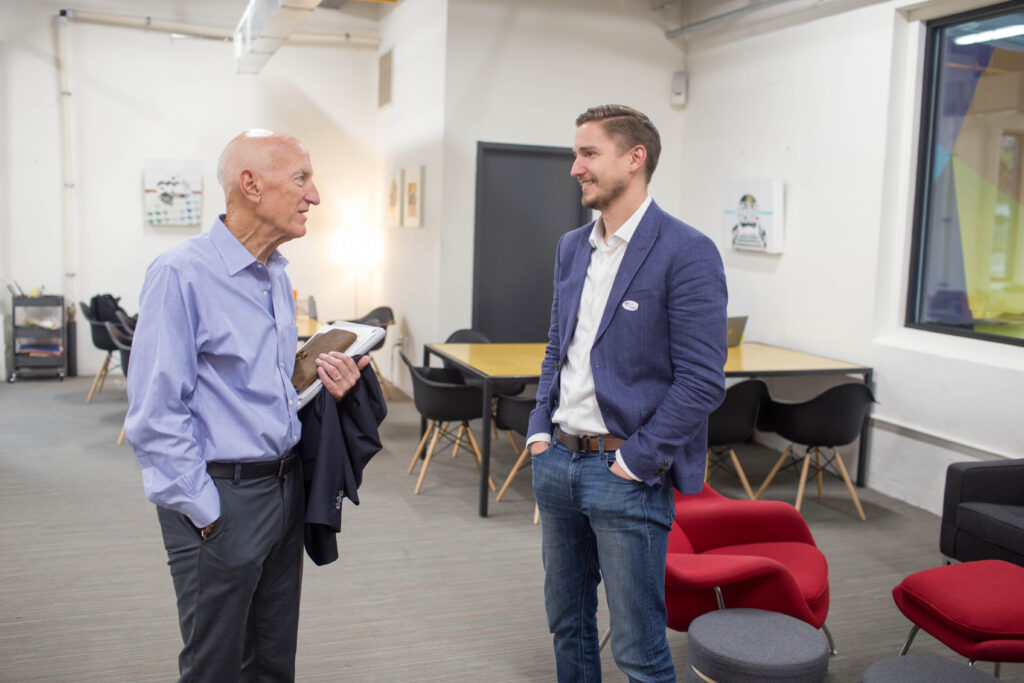
I have spent time with founders and leadership of several companies in the last 30 days related to perspectives in this time of uncertainty and instability. In essence, having guided my company (then Peak 10, now Flexential) through the downturn in the 2008 time period, I have been able to share insight about planning on a customer, employee and overall financial perspective. That boiled down to over communicating, listening intently and sharing the steps you are taking to protect each area. An important step is to gather your key players and engage them to think differently about the current state and future of your business. Throw out actionable ideas that will help formulate your next steps for the short and longer term. Keep your team close and focused.
What are your thoughts on the role of mentors in the current uncertain reality? Why are they important, and is now a time to engage your mentor/mentee on a deeper level?
A mentor must take this situation very seriously and put his or herself in the shoes of the individual they are working with. I use the term “listen intently” because that is what you must do in order to be a guide and to have the full picture of the stresses the company leader is dealing with.
What advice would you give to entrepreneurs in our community right now?
Keep focus on your customers and employees and understand their needs. Take care of your best in ways that are meaningful as best you can, and that doesn’t mean just financially.
What's the most important thing you'd like to help INCLT accomplish in these uncertain times?
Remain a resource for the members.
Being a resource for members will, in turn, support our community as a whole. Olga Muller, director of operations for local software development company Kepler Team, has seen that firsthand, both as part of a startup and as a member of the broader entrepreneurial ecosystem in Charlotte. “No business or founder can succeed in isolation. Success requires a collaborative approach and help from those who have been there and done that when it comes starting and building companies.”
If you’d like to support entrepreneurs in our community, consider the INCLT Venture Mentoring Service. We are currently accepting applications for both mentors looking to give back and founders in need of guidance. Learn more here.
The impact of COVID-19 on Charlotte’s entrepreneurs
On a mission to do what’s never been done before, entrepreneurs sometimes face obstacles they’ve never seen before. For many of our mentees, the coronavirus pandemic and the economic uncertainty associated with it have posed an existential threat to their ventures.
At Innovate Charlotte, we are here to help. In 2017, we launched a mentorship program that provides founders with teams of mentors from all walks of life to offer guidance on everything from financials to marketing to strategy. We did that because we believe empowering entrepreneurs is crucial to fostering a vibrant and strong economy.
It will be just as critical in bringing our economy back to life.
The era of social distancing has made our work difficult, but not impossible. We’ve transitioned to virtual mentorship sessions. We’ve engaged in digital meetups and events. And we’ve kept tabs on our founders and our mentors throughout this crisis to determine when and how we can help.
This is one of those efforts.
We’re opening up the floor to our entrepreneurs. In a series of interviews, they've shared with us their latest triumphs and their current struggles. We will post their stories in the coming days and weeks to give you a detailed look at what some companies are experiencing. To kick us off, here’s a look at what we’ve heard from a few of our founders.
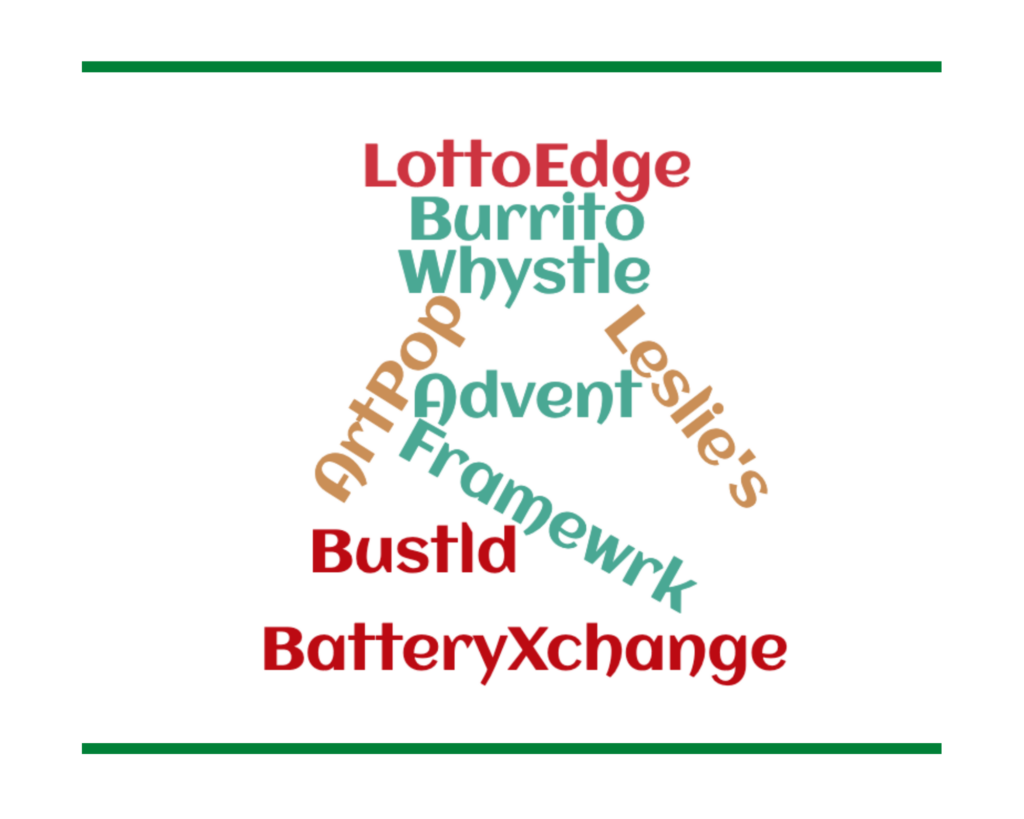
What's your biggest challenge right now?
“Our paid customers are truly struggling as their entire spring season of events has been wiped out. For many of them, that means putting a stop to marketing. For others, they want to wait and see how long this continues before committing to any additional marketing spend.” — Samie Roberts, co-founder and COO of Bustld, an online wedding resource designed to connect couples with vetted local vendors and online resources.
“Driving revenue growth fast enough to fund tech updates.” — Jared James, founder of LottoEdge, which analyzes every scratch game and every prize to give lottery players an edge based on actual data.
“Moving to a virtual platform quickly to access clients.” — Melissa Mehrlich, co-founder of MEAH Health Navigation, a healthcare consulting firm that provides care management, education and advocacy to families and caregivers.
What help do you need from the entrepreneurial community and/or INCLT mentors?
“In the coming weeks, our mobile app will launch on iOS and Google Play. We are going to need support from experts with an IT and software development background.” — Aubrey Yeboah, co-founder of BatteryXchange, a mobile phone charging solution with an IoT platform that enables customers to rent portable batteries and return them with ease.
Any relationships with commercial landscapers, grounds management companies, homeowners associations, townships and universities would be of great help to accelerate our pipeline of sales so that we can continue to hire more seamstresses, seamsters, screen printers and fulfillment employees right here in Charlotte. – Marc Mataya, founder of Leaf Burrito, an innovative and eco-friendly reusable yard-debris bag invented, designed and manufactured in the USA.
“Spreading the word about our disinfection services and connecting us with any essential businesses that can use our help. We are uniquely positioned with OSHA- and CDC-trained teams to provide disinfection that everyone needs right now. Anything helps right now!” – Chris Wright, founder of Whystle, a home cleaning service that allows customers to book disinfection and move-in cleanings through the company’s website.
Do you have any good news we could also share?
“We have pivoted quickly to connect members digitally, revamp our podcast program and are proactively pushing Advent to become a bigger/badder coworking space when the new ‘normal’ arrives.” — Kevin Giriunas, founder of Advent Coworking, a creative coworking community in Charlotte where artists, designers and entrepreneurs can come together and innovate.
“This has been a great time to build plans and prepare. That time isn’t usually received. We have test clients for our desktop app who have to be at home, so we lucked out.” — David Hunt, founder of Framewrk, a consulting agency that provides guidance to startups and small businesses through its intuitive Q&A app.
“24/7, 365 days a year, we feature the work of local artists on billboards, newsstands and more and have been doing so for 7 years in Charlotte.” — Wendy Hickey, founder of ArtPop Street Gallery, a nonprofit organization that promotes the work of local artists on available media space — billboards, buses, news racks, airports — and turns roads, highways and thoroughfares into opportunities for artistic appreciation and discovery.
“I was able to secure a one-year contract with UNCC.” — Domonique Boone, founder of Leslie's Laundry Care, which provides on-demand mobile laundry services and dry cleaning in Charlotte and the surrounding areas.
Thank you to Kepler Team for sponsoring our communications. If you’d like to help founders through this crisis and beyond, or you’re an entrepreneur looking for guidance, consider joining the INCLT mentorship program. Applications for both mentors and founders are now open at our website. Challenging times call for expert insight. Apply today.
INCLT’s Keith Luedeman on how COVID-19 is transforming startup life as we knew it
Less than a week before the COVID-19 pandemic shuttered Charlotte Mecklenburg schools and pushed much of the Queen City into a new and uncertain normal, Keith Luedeman and I met for coffee at Amelie’s in Park Road Shopping Center.
Signs of the crisis were already beginning to show. Amelie’s had forsaken reusable cups in favor of more hygienic disposable ones. The server behind the counter expressed concern over her daughter, who was off at college and had shared an ER with someone who had tested positive for coronavirus. But no one really knew how dramatically it was going to transform our lives just a few days later.
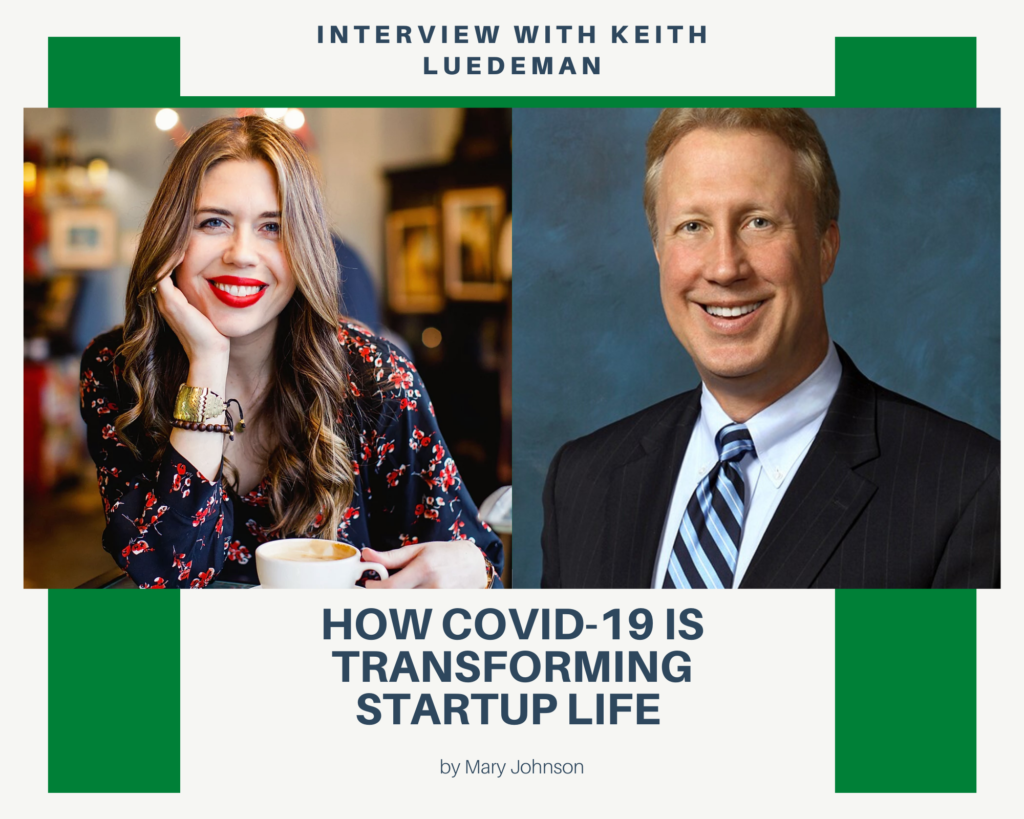
So Keith and I talked about what he’d been up to over the past 18 months, since he took over as executive director of Innovate Charlotte. His list was full.
He was serving as a judge for the Charlotte Area Technology Collaborative’s Blue Diamond Awards, celebrating the city’s best in technology. The event was meant to be held April 7 and is now postponed until fall.
He’s chair of the Entrepreneurial Leadership Circle at Queens University and is heavily involved in the Queens Pitch Competition, which gives undergraduate students from all majors the opportunity to compete for up to $5,000 in prize money for their innovative business ideas. That was meant to take place March 19. Now, that’s postponed, too.
He’s been working with Bunker Labs, an organization dedicated to helping members of the military community start businesses. Keith served in the National Guard. The organization struck a personal chord, and as Bunker Labs set up shop in Charlotte earlier this year, he helped them find speakers and set up event locations. Now, any upcoming events are on hold.
He won the Finsiders’ Dan Roselli Community Organizer Award for his work building the FinTech community in Charlotte, and now he’s faced with an interesting question: How do you build community when that community is quarantined, at least until the end of April?
But in many ways, Keith is prepared for this. For one, INCLT is strong — much stronger than it was when he took the helm.
“Eighteen months ago, we were looking at whether we were going to survive. We had no sources of funding. The mentorship program was still very much in the pilot stage, and we had little diversity represented,” he said. “Now, our program is over 50 percent female and non-white among our founders and over 30 percent among our mentors. We have funding from NC IDEA and the city’s Economic Development group for the next three years. We’re stabilized, and now we’re at the stage where we’re figuring out what our path forward is going to be.”
Keith is hard at work charting that path, even now, from his home office, which is saving him a ton on travel time and turning him from an amateur Zoom user to a power one.
“I had a camera that I bought for my PC and never got around to hooking it up. Now I'm on my camera probably more than I'm on my phone during the day,” he said.
He’s taken the current reality and restrictions and pivoted, not changing the work he does just shifting it to accommodate new needs in a new environment.
He wakes up these days earlier than he did when he was running his business, GoodMortgage.com, which he exited from back in 2016. When we reconnected by phone recently, he had virtual meetings booked all day, from first thing in the morning until 4:30 in the afternoon. All INCLT mentorship meetings are continuing online, rather than in person, so the organization is now up and running virtually. The city’s startup ecosystem meetings, which Keith is a part of, have moved from quarterly to weekly so community leaders can brainstorm resources and ways they can support local founders.
Keith has also seen a significant increase in requests for his time and counsel. The dot com crash hit a year after he started his company. He shepherded GoodMortgage through the Great Recession of 2008. He hasn’t experienced this kind of crisis — none of us have — but he’s had his share.
“By no means does that make me an expert, but at least I’ve got experience dealing with brutal things that can happen to a business,” Keith said. “All these crises are different, so the one thing I can help with is making sure our founders go back to the entrepreneurial mindset. No idea is a bad idea. Keep your head down and fight like hell. In these moments, when you’re making decisions on expedited timelines and dealing with the stress of the world, you need somebody to talk to. I want to be that person, as much as I can.”
Even in these first few weeks, he’s been impressed — but not surprised — by how quickly Queen City startups have adapted in the face of COVID-19. One of the founders he’s mentored over the past few years — Aru Anavekar of the AI conversation tool botsplash — acted fast in the face of the pandemic. Her platform was already working with mortgage lenders, allowing them to communicate via chat or text, but over the past few weeks, she’s implemented video, too.
“Now, those lenders dealing with the crush of people trying to refinance can talk to their customers face to face through the botsplash app,” Keith explained.
Bustld, a local company that is taking part in the INCLT mentorship program, is another example. Founders Ryan and Samie Roberts built the platform to connect engaged couples with vetted wedding vendors. Now, with weddings at a standstill, they are selling products through their platform and using the proceeds to support their vendors, who are feeling the pain of the crisis acutely.
“I’m seeing a lot of people helping other people. As a result, they will have customers for life,” Keith said.
It can be hard to find good news in hard times, but in the case of Charlotte’s entrepreneurial community and INCLT, it could be this: The past 18 months were about laying a strong foundation, getting stable. Now, our entire community is being tested.
And, as Keith will tell you, we’re ready.
Thanks, as always, to the Kepler Team for continuing to support our outreach to the Charlotte startup community. Their commitment makes it possible for us to share our work and the work of others in the ecosystem.
Whether you’re a seasoned leader interested in supporting local startups or a startup in need of advice and guidance, consider taking part in the INCLT mentorship program. We are currently accepting new mentors and founders. You can learn more here.
Understanding the difference: independent contractors vs. employees
(Disclaimer: The information presented in this article is not intended as legal advice. Please consult with an attorney and/or tax professional before hiring independent contractors or employees.)
Just about every business needs outside help at some stage of growth, but how do you know if you need a contractor or an employee?
A few factors go into that decision — financial, cultural and even legal. Here’s an overview of what to consider when it’s time to build your team.
Get to know the differences
In the eyes of the law (and the IRS), workers traditionally fall into two categories: employees and independent contractors.
These two types are often described by their respective forms for reporting income to the IRS: 1099 for independent contractors and W2 for employees. Both have their time and place for your business, and businesses frequently use both at the same time, depending on their needs. Below is a quick breakdown of the key distinctions.
| Independent Contractors (1099) | Employees (W2) | |
| What should they help with? | Specific goods and services | Any area of business |
| Should you train them? | No | Yes |
| Should you provide equipment? | No | Yes |
| Should they work under your supervision? | No | Yes |
| Who is responsible for withholding taxes? | Contractor | Employer |
| Should you provide benefits (PTO, health insurance, etc.)? | No | Yes |
Contractors: a business within a business
Businesses often hire independent contractors when they don’t have enough work to justify permanent employees.

David Worrell is a fractional CFO and partner at Fuse Financial Partners. In his role, Worrell works with small and medium-sized businesses that don’t have a robust financial team. He said an independent contractor role is perfect for people you don’t have to supervise, such as consultants or housekeepers.
“1099 is designed as a way to employ experts,” Worrell said. “It's designed as a way to employ people for their technical expertise or ability to complete a job that is not part of your day-to-day operations.”
This means independent contractors, similar to vendors, conduct business on a transactional basis. Usually, a business pays a contractor for his or her work and that’s it.
“You are buying a finished product or a finished service from those people,” Worrell said. “You're not purchasing their time. You're purchasing their output.”
In a sense, independent contractors are in business for themselves, meaning they carry their own liability and are responsible for their own taxes. They’re also expected to use their own tools.
“Technically, a 1099 contractor should bring his own computer and not report to your office every day to use your copy paper and pencils,” Worrell said.
And they can be an invaluable resource as you’re growing your business.
The contractor cost/benefit analysis
Contractors will often command a higher wage, but could be cheaper in the long run, since they aren’t obligated to ongoing benefits in addition to their wages, as an employee would be. In addition, employers don’t have to pay for taxes for contractors — another source of savings.
“You don’t have to pay FICA, FUTA and SUTA on any 1099 contractors, and that’s equal to [approximately] 7-10% of your wage, so you can save a big penny there,” Worrell said.
There comes a time when it benefits the business to transition from contractors to full-time employees — although that moment can be hard to pinpoint. The cost savings can make it tempting for a business to rely too heavily on contractors, treating them more like full-time employees while classifying them as 1099’s. And that can get companies into trouble. After all, calling someone a contractor doesn’t necessarily make it true. The IRS has its own criteria for determining whether a worker is an independent contractor or employee.

Andrew Tucker is a fractional CFO and owner of AETucker Consulting. Tucker said he has helped clients decide between contractors and employees. In one instance, he advised a client to convert a contractor to an employee when the relationship didn’t pass the smell test.
“Basically, if the employee looks like and acts like an employee, then they’re probably an employee,” Tucker said.
Employees: a long-term investment
Beyond the legal considerations, choosing between contractors and employees is also a cultural decision. Sometimes, it’s a smart move to fully commit to having a person on your staff, Tucker said.
“In general, you're going to get more loyalty, in my opinion, from an employee versus a contractor,” Tucker said.
Worrell agreed.
“As a business owner, the best way to build culture is always going to be to have an employee,” Worrell said.
Perils of Misclassification
Be careful of bending the rules – if you do, the potential penalties for non-disclosure could be as much as 40 percent of all wages for previous years.
If you find that you have made a mistake, you don’t necessarily have to wait to get audited to address it. The Voluntary Classification Settlement Program is an opportunity for business to come clean to the IRS and convert workers to employees for future periods, in exchange for a reduced amount in back taxes and penalties.
As of 2020, participants in the VCSP would pay “10 percent of the amount of employment taxes that would have been due on compensation paid to the workers being reclassified for the most recent tax year, calculated under the reduced rates of section 3509(a) of the Internal Revenue Code,” according to the IRS.
“So many people get caught up in calling [employees] contractors, and they don't realize it until it's too late,” Worrell said. “It’s the right decision for you if you think you’re making incorrect classifications.”
You can outsource the decision, too
Rather than personally managing workers, some companies choose to farm out their HR functions by hiring a professional employer organization (PEO) or a staffing company.
These companies can act as employers of record for you and handle all of the administrative workload, such as payroll, timekeeping and claims. They also have tremendous buying power for benefits, albeit at a cost to the customer.
“They can get preferred rates on your health insurance in particular,” Tucker said. “So instead of you having possibly 10 to 15 percent increases per year, you could have 3-5%, which could save a business a lot of money.”
Keep an eye out for changes
As the gig economy has taken root, some startups, such as Uber, have a business model that relies on a roster of independent contractors. That has implications on tax collection, because contractors can fail to self-report their income and that means lost tax revenue for states.
To address that shortfall, states like California have tried to reexamine the independent contractor role with legislation, Tucker said.
“They're actually wanting people like Lyft and Uber drivers to be employees as opposed to contractors, and they very much changed the rules on that,” Tucker said. “So it depends on how many other states get involved with that same methodology.”
But chances are, they’re coming.
“Keep your eye out for future legislation from other states because I’ll bet there's going to be some more.”
At the end of the day, how to hire is a complex decision, with multiple factors at play. Part of our goal at INCLT is to help founders and entrepreneurs build their business acumen so they can set their ventures up for success. That happens through these articles (thanks to our new friends at Kepler Team for supporting our efforts to spread valuable information), as well as through our Venture Mentoring Service, which pairs companies with seasoned business leaders from all areas of expertise.
We are currently accepting applications for founders and mentors. To find out more about our program and to apply, click here.
Ready for more than friends and family money? Here’s what you need to know when you go in search of professional investment
Say your company has a prototype or product on the market, some traction among your target audience and some revenue coming in the door. The concept has been proven; now it’s time to scale.
That’s about the time many startups hit the pitch circuit, making their case to investors about why the company is worth their money and time. They recognize that scaling takes money — that if the friends-and-family round of fundraising was the foundation, the next round will provide the fuel.
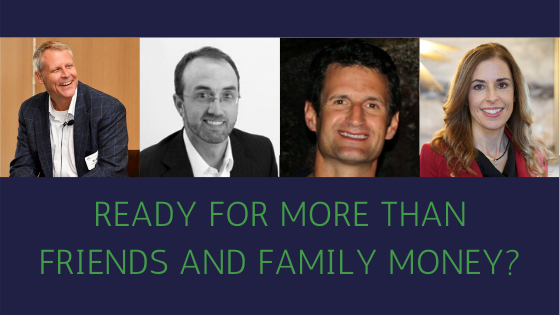
In Charlotte, the number of companies that are ready to pursue the first round of professional investment is relatively small, said Rob Cummings, co-founder of DealCloud and managing director and CTO at Falfurrias Capital Partners.
“There are a lot of very interesting companies that are very early on in Charlotte, and there are others that have raised venture capital funding and are well on their way. But there’s not a ton right in the middle,” Cummings said.
It’s a symbol of Charlotte’s status as an up-and-coming startup city. As the Queen City gains notoriety in the larger entrepreneurial ecosystem, it’s something that will change, Cummings said. Companies will grow beyond those earliest stages. They’ll start gaining more traction and becoming more attractive to investors.
“It’s a cycle,” he explained. “And those companies are on their way.”
While every startup is unique, there are some questions they all must consider as they embark on the fundraising process. Here are a few, according to local investors and founders.
Do you know your stuff?
William Bissett is the founder and host of the Charlotte Angel Connection podcast in Charlotte. He’s become a voice for the startup ecosystem in Charlotte, inviting founders and investors and space into the studio for in-depth conversations on the local startup experience. To date, he’s hosted nearly 100 episodes, and in the process, he’s confirmed that fundraising in Charlotte isn’t easy.
“You’re going to be turned down, a lot,” he said.
Charlotte isn’t a startup hub. And while Charlotte has “boatloads” of money, the city doesn’t have any “dumb money,” as Bissett calls it.
What’s “dumb money”?
“When you go out to San Francisco or Austin or New York, some businesses sold for a billion dollars, and you’ve got 100 early employees who got well compensated through stock. Now, they have money, and they’re going to invest in startups because that’s what they know,” Bissett explains. “Here, there aren’t 100 people who made $10 million and are ready to just throw money at startups.”
That means startups have to earn the money they raise.
“When you’re presenting in front of folks, they want to make sure you know everything about the product. They want to make sure you know everything about your business, too. Your numbers have to make sense. You’ve got to know your market, and you’ve got to show some demonstratable knowledge of your end user,” he said. “Raising money can be done in Charlotte. It just has to be a really good fit.”
Do you really need the money?
Angel Rutledge meets with a lot of founders through her work as an investor, advisor and mentor to local startups. Many of them assume they’ll have to raise money as part of their entrepreneurial journey because it takes money to build a company, right?
But Rutledge advises them that raising money isn’t always the best course of action for a young company. She and her husband, Dan, for instance, bootstrapped SignUpGenius, an online event planning and volunteer management tool, until they sold a majority stake in the company to a private equity firm back in 2017.
“A lot of times, I’ll encourage founders to figure out how they can make progress in their business regardless of the funding they have. And there are so many ways to do that. We have the resources for that in Charlotte,” Rutledge explained.
Ventureprise is one, she said. NC IDEA grants are another, along with mentorship programs like the one offered through INCLT and office hours at Packard Place, where entrepreneurs can meet with a handful of successful founders for free.
“We have what’s needed in the ecosystem for many companies to get started without a round of funding. Bootstrapping a company is not easy. It’s definitely not easy, but honestly, it can be easier than getting on the path of raising money. There are strings attached to the money you raise,” she said. “When you take outside investment, you’re signing up for different challenges.”
Bootstrapping is not an option for every type of company, Rutledge added. But if it is, those companies will have a lot more flexibility and freedom.
“With every bit of equity, you give up your ability to make some choices,” she said.
If you do need the money, what are you willing to give up?
Matt McFee is a founding partner of BriteVerify, an email list verification platform, and a startup investor. In his experience, there is a factor to middle and late-stage investing that most founders don’t take into consideration.
Investors coming to the table with serious dollars will have demands. While most founders focus on matters of equity, many investors will also have thoughts on leadership. There’s a chance they’ll want the founder to step aside, in favor of bringing in their own leadership to push the company forward. They may stack a startup’s board with their own selection of advisors. And they may position themselves to have a stronger voice than their equity stake would imply.
McFee, a mentor with the INCLT mentorship program, calls it “the most undervalued result of a fundraise.”
That doesn’t have to be a bad thing, McFee added. For instance, when he was building BriteVerify, there came a point when he and his founding team realized they had taken the business as far as they could.
“It was time for us to walk and put it in the hands of someone who could do something greater,” said McFee, who exited BriteVerify in 2018 after it was acquired.
But it does require asking yourself in advance what you’re willing to do in exchange for investment.
“Maybe raising capital and taking a different seat in your company is something you’re willing to accept. Or maybe you decide you have to be the CEO and have at least this much equity,” McFee said. “But, if you’re an early-stage company that still has to prove you have a strong, valuable, scaled business, you don’t have the leverage you think you do.”
How do you find the money you need?
A good place to start, Cummings said, is by looking for people who have invested in your industry in the past.
“We were ultimately successful with a high-net-worth angel investor who lived in our business and had experienced the pain we were solving for. That was key to our success. So I’ll tell entrepreneurs, ‘Find someone who really knows the industry — experienced the challenges,’” Cummings said.
Those people could be part of the Charlotte Angel Fund, a powerful network of local angel investors. (Cummings and Rutledge both are.) The Charlotte Chamber of Commerce has put together a thorough list of local venture capital, private equity and angel firms, with contact information. Local accelerators such as Queen City Fintech can offer investment in startups that complete their programs. And Pitch Breakfast, a monthly pitch simulator hosted at Packard Place Uptown, can give entrepreneurs the practice they need to make their fundraising efforts more productive — and introduce them to valuable connections.
Regardless of the avenue a startup chooses to take, McFee agrees with Rutledge that startups should do whatever they can to come to the fundraising conversation from a position of strength.
“Find a way to get to the point where the business is affording itself. Then you can figure out the right way and from whom to raise money,” he said. “Anything you can do to be able to take your time and have a cash-flow-positive business going into a raise is the strongest advice I can give an entrepreneur.”
At INCLT, we are committed to serving Charlotte’s entrepreneurial ecosystem, through information, advice and mentorship. RMCSoft, a software development firm, supports those efforts by making these monthly articles possible.
If you’d like to do your part for local founders, you can sign up to serve as a mentor to a local founder. We are also accepting applications for founders in need of mentorship.
You can find more information here.
The friends and family round — What early-stage startups need to know
A startup at any stage needs money. What varies is how much, and where that money comes from.
We tend to hear a lot about later-stage funding. You may have read, for instance, that Passport recently closed a $65 million Series D round. Less frequent, though, are the early-stage fundraising stories — the friends-and-family rounds.
And yet that can be some of the most important money a company can raise.
The money you receive when you’re starting out allows you to lay a strong foundation for success moving forward. It also comes with significant personal risks: If you squander friends and family money, you can damage important relationships.
“It is definitely something that weighs heavy on me at night,” said Christine Nicodemus, who raised $280,000 from friends and family to get her startup, Ascend, off the ground. “It’s one thing to convince your husband that you’re going to drop a great salary at a great job to go do something. It’s another to ask for commitments and votes of confidence and investments from people who are good friends of yours.”
Another layer of accountability

Nicodemus went full-time with Ascend, a gamified goal-setting platform, back in March after making a personal investment in the company and getting funding from a former professor.
“That gave us the funds to go develop what we were talking about,” said Nicodemus, now part of the INCLT mentorship program.
Soon after that, she realized the company needed to hire additional resources. To do that, she was going to need money for salaries, so she turned to another former professor. Then, a close friend whom she met through her church decided to contribute, too.
Those investments have come varying degrees of accountability to the pressure inherent in taking money from family and friends. Her first investor appreciates updates but is very hands-off. He told Nicodemus he just wanted her to “do something meaningful.” The other two investors are more actively involved and diligent in offering feedback on directional questions and other updates, Nicodemus explained.
The investment agreements have also varied between investors. Nicodemus’ first investor, for instance, did a “SAFE” — a simple agreement for legal equity. The other two investors requested convertible notes.
What stayed consistent throughout her fundraising process was the ask: Her conversations would always begin with a request for feedback, rather than money.
“That was genuine,” she explained. “We absolutely want the feedback, and based on their reactions to it and their interest level, that determines what questions come next on our side.”
No input, please

Drew Bartek, co-founder of Groove Watersports, approached the friends-and-family conversation in a similar way. When the company was raising $140,000 from angels, friends and family, Bartek, who is also part of the INCLT mentorship program, talked to just about everyone he knew. And he opted to be candid from the start.
“I was very up front about the risk involved with family and friends,” said Bartek, whose company makes the Groove Vest, a life jacket with built-in speakers. “And one of the things we made explicit for friends-and-family investors was that we wanted to update them but are not looking to receive ongoing questions. We disclosed everything we knew to them prior to accepting investment. If there’s an area where you can add value, then by all means set up a call with us and let’s discuss it. But we’re not looking for feedback on various things because then you have 12 different people running your business, and you don’t get anything done.”
And you’ve got to get things done to have a shot at future fundraising success.
When friends and family seed success

Rob Cummings, co-founder of DealCloud and managing director and CTO at Falfurrias Capital Partners, lived through every stage of fundraising during his time at DealCloud, a software platform built to serve the private equity world. And it started with a friends-and-family round.
For that, Cummings and his co-founder, Ben Harrison, turned to their colleagues at Falfurrias Capital, a Charlotte-based private equity firm. They understood the challenges inherent in the private equity space. And they signed on to invest as friends, rather than professional investors.
“They invested personal money because they believed in what we were doing,” Cummings said.
A year after that, in 2012, DealCloud raised a seed round — part of which involved collecting more money from those initial friends-and-family investors. Then, the fundraising process stalled. DealCloud did over 100 pitches for its next round, and nothing panned out.
But that didn’t stop the company from growing. Those early rounds of fundraising had allowed DealCloud to build a solution to a known problem, and the company became profitable, fast.
“By mid-2015, we had over $1 million in annual recurring revenue, and that’s when we became really attractive to VCs. That’s when they started calling us,” Cummings recalled.
In 2015, DealCloud raised $5.3 million. In 2017, it raised an additional $4.5 million. And then in August 2018, DealCloud was acquired, and Cummings exited.
“With early stage, you’re really betting on the team. Can you see the passion with the entrepreneurs? Do they really know their market?” Cummings said. “For us, we had experienced the pain personally, and we could verbalize why we built the solution. And that resonated.”
The value of shared experiences
This article is the first in a series about fundraising for companies at various stages of growth. Next month, we’ll dig into what comes after the friends-and-family round, based on the stories of those who have been on both sides: the companies who have raised money and the investors who given money.
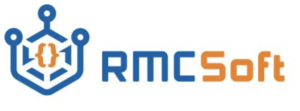 That on-the-ground perspective is a critical part of the work we do within the INCLT mentorship program, which is built on the idea that members of the entrepreneurial ecosystem have a lot to learn from one another. Whether it’s the intricacies of running a business or the strategies involved in raising funds, the experiences of those around us are powerful tools in making the entire community stronger. We are grateful to RMCSoft for helping us share these stories with the community at large.
That on-the-ground perspective is a critical part of the work we do within the INCLT mentorship program, which is built on the idea that members of the entrepreneurial ecosystem have a lot to learn from one another. Whether it’s the intricacies of running a business or the strategies involved in raising funds, the experiences of those around us are powerful tools in making the entire community stronger. We are grateful to RMCSoft for helping us share these stories with the community at large.
Want to do your part to help the ecosystem grow? Consider joining INCLT’s Venture Mentoring Service. We are currently accepting both mentors and founders looking to learn. Click here for more information.
Inside the state-funded effort giving North Carolina an edge over the entrepreneurial competition

It started with an old tin percolator.
Calvine Frazier was 8 years old and visiting her grandparents’ farm. Her mother and her grandmother would sit at a table, drinking a mysterious beverage. Frazier didn’t know what it was, but she knew it must be good because it filled the room with conversation and laughter.
So, she poured some into a cup and snuck a taste. It was the best thing she’d ever tasted: coffee. Years later, that experience inspired Frazier to start a business.
But that business – her own coffee shop – needed percolating too, which led Frazier to the Small Business Center at Central Piedmont Community College.
Founded in the early 1980s, the SBC is one of 58 centers housed at community colleges across North Carolina. Providing seminars, counseling and more, the network is set up so anyone looking to start a business in the state can access resources within a 30-minute drive.
Because Frazier’s business meant so much to her, she wanted to make sure it was set up correctly. So, she explored the SBC’s free resources, which helped her structure her company.
“Once you start talking to the counselors, they give you the most upbeat encouragement,” Frazier said. “It’s already in you. They just bring it out.”
With that guidance and a lot of hard work, Calvine’s Coffee has taken on a life of its own since its launch in 2015. Today, the business has two locations and a coffee cart, with a third location planned for 2020. Frazier said she expects to use additional counseling to help with the expansion.
Small Business Center at CPCC
And Frazier is not alone. Last fiscal year, the SBC provided more than 490 hours of counseling to 267 clients, and more than 2,700 participants attended the center’s seminars and courses
Those clients cross the entire spectrum of small business ownership, from novices looking for input on an idea to owners of existing businesses looking to scale. The services offered at the SBC are largely free, with some tuition-based courses, and they include one-on-one counseling, as well as seminars and workshops. It’s a resource center of sorts, allowing small business owners to get help with different challenges at different stages of their ventures.
Partnership with Innovate Charlotte
SBC has become one of our valued partners at INCLT. While our work focuses on founders who’ve gotten some validation of their idea and a yearlong mentorship experience, they are providing a constant source of information and support for small businesses, from the idea exploration stage through growth and scaling challenges and through a variety of offerings. And when one of us encounters a venture that would be a better fit for the other organization, we refer them along, for the benefit of all involved.
| Small Business Center at CPCC | Innovate Charlotte VMS | |
| Target ventures | Small businesses in Mecklenburg County | Main street & tech / high-growth in the Greater Charlotte Area |
| Stage of the business | Any stage, including existing businesses | We work with companies that have some traction and are past idea only stage |
| Fee | Free (Some tuition-based courses) | Free |
| Main focus | Overall business troubleshooting with counseling, seminars and workshops | Mentoring, helping founder grow as a leader |
| Founder experience | Novice to advanced | Usually some or significant business experience |
| Commitment | No commitment | At least 1 year |
Renee Hode
The SBC’s work with business owners starts with an understanding of where they are in the entrepreneurial process, said Renee Hode, executive director of the Small Business Center at CPCC.
“A lot of people just come into the center because they’re thinking about an idea and they don’t know how to get started,” said Hode, who was recently named Small Business Center Network State Director of the Year.
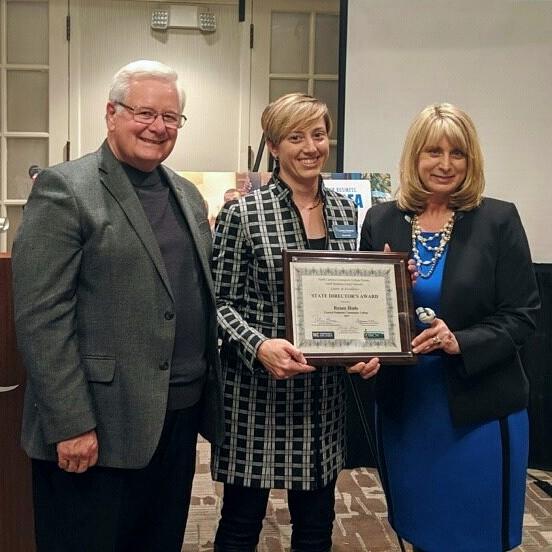
“What we’ll do is set them up with counseling because it’s best to work one-on-one to understand where they want to be personally and professionally. Business ownership isn’t for everyone, so we want to assess their professional and financial goals.”
From there, the SBC can assist with just about any obstacle the business is facing. The staff has specialists in accounting, digital marketing and government contracting, among other areas. Clients can also receive legal advice, a must-have for every fledgling enterprise.
Overall, North Carolina is unique in this endeavor. While the federal government funds its own small business programs such as SCORE, the SBC network is state-funded and helps create and retain 3,800 jobs in the state every year.
“North Carolina takes it a step further,” Hode said. “Our legislators have recognized that small business is the engine of growth.”
The center promotes that growth with workshops and seminars on a wide range of topics, some of which are free. Clients can learn the fundamentals of business or more targeted subjects like marketing on social media. There’s even a course on how to start a food truck.
“Whatever element you’re going to come across in your journey of getting started or growing, we’re going to have some type of training that we can put you through that is focused on those particular areas,” Hode said.
Outside of informational resources, the center also gives clients a way to get plugged into the business community at large, as well as to other resources.
“It’s not only about the training or the coaching that we might provide,” Hode said. “It could be opening a door to the next connection that you need for something else. We all have an extensive array of partners that we work with, and sometimes, it’s just opening that next door by coming in and building a relationship with any one of these entities.”
Together, the collaborative approach at the SBC has helped Charlotte develop an ecosystem of business development resources, Hode said.
“When someone’s looking to start or operate a business, whether it’s a novel idea or concept or it’s something that’s a repeatable type of entity, they should take advantage of all the resources in the community to help support them,” Hode said.
That collaboration is core to Charlotte’s growing ecosystem of support for entrepreneurs — a community of partners committed to working together to provide entrepreneurs and business owners with the tools they need, when they need it.
Local health-tech software development company RMCSoft is a vital part of that effort, supporting our work to shed light on the work of our organization and others in the entrepreneurial ecosystem.
Interested in getting mentored by Charlotte’s leading executives and entrepreneurs? You can learn more and start your application here.
Interested in becoming a mentor? Submit your application here.
